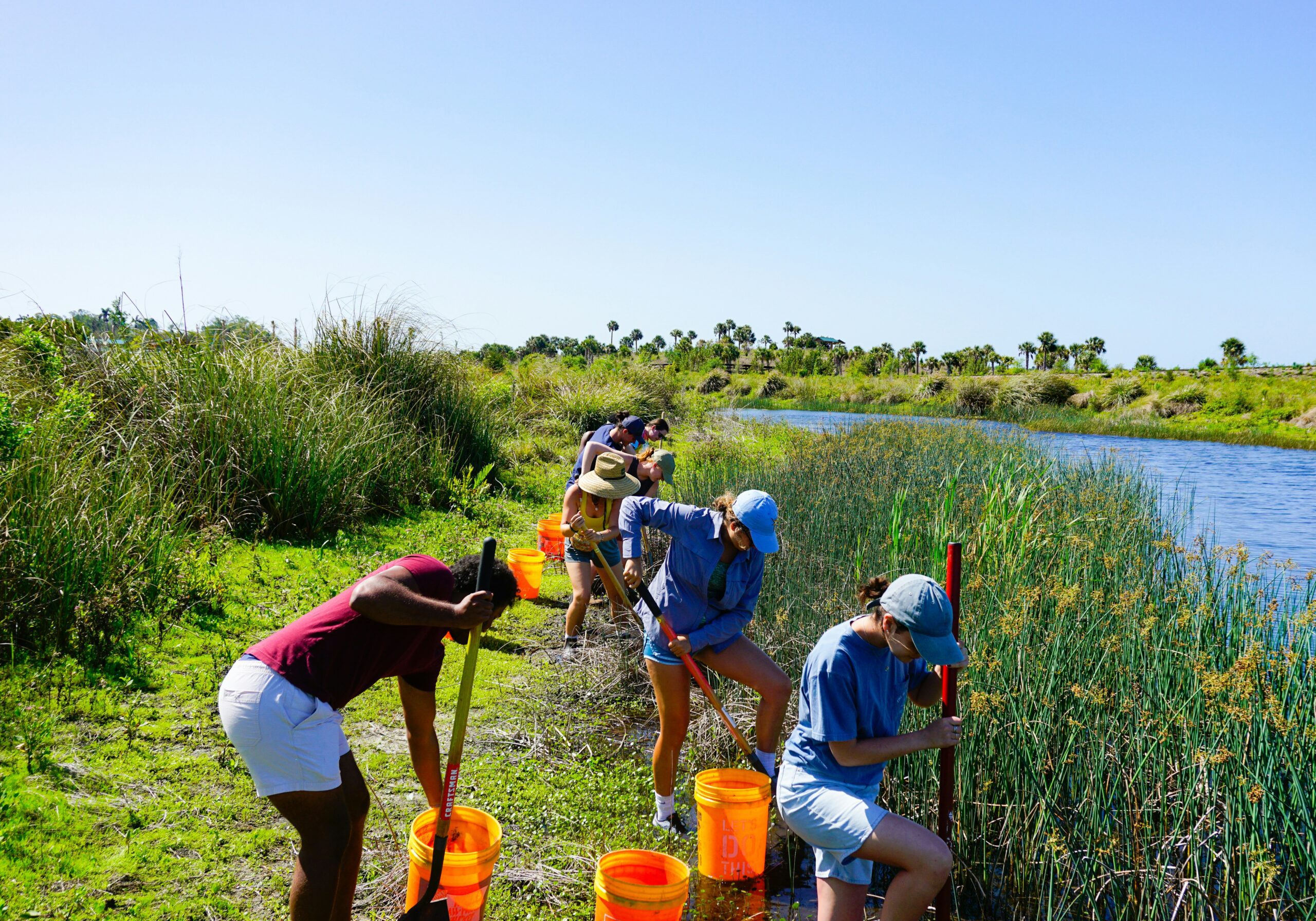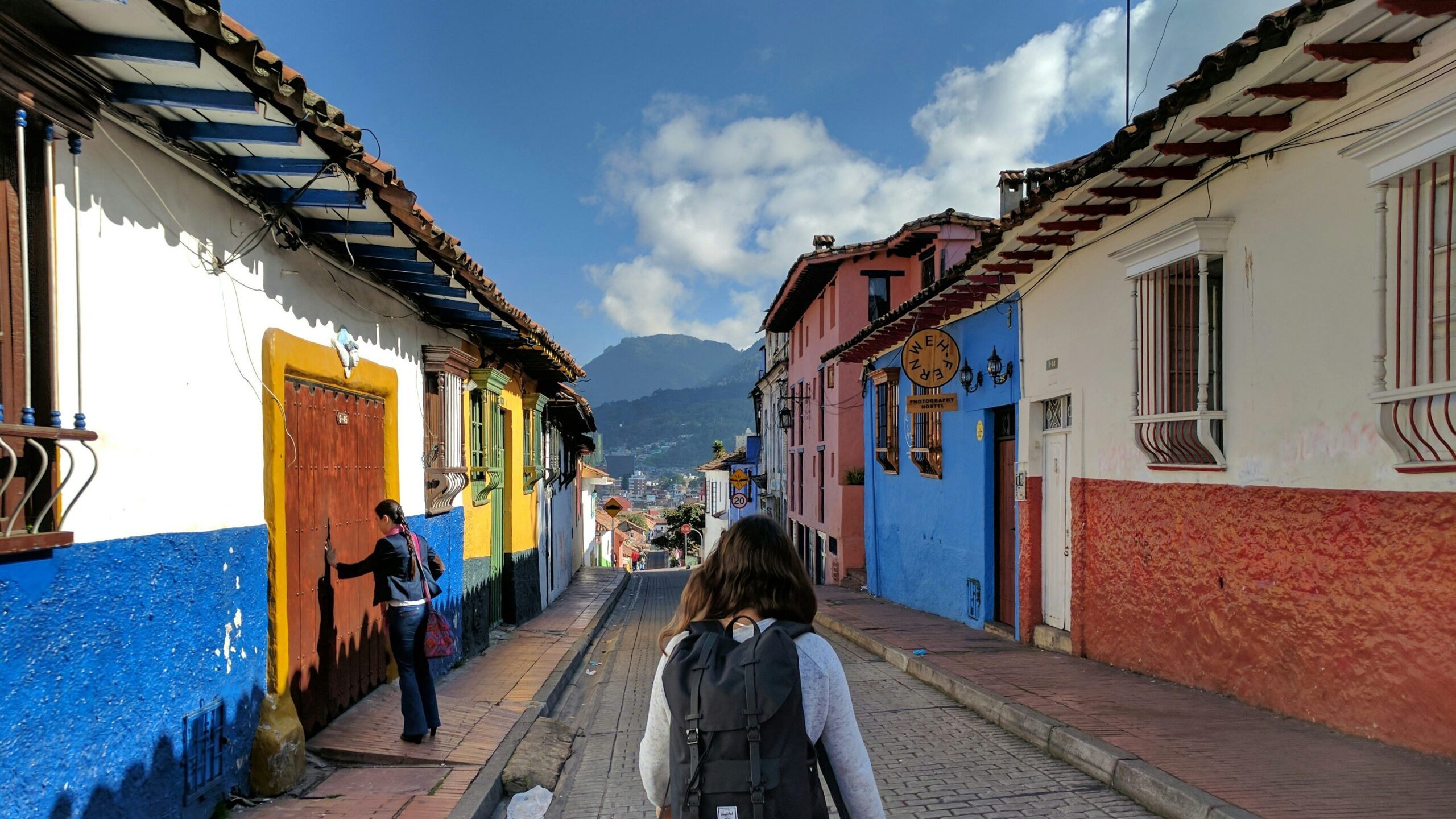
Work Travel Abroad Program: Cheap Way To Travel The World
When we started traveling 5 years ago, we discovered work travel abroad program. It’s a way to exchange skills for accommodation and sometimes also meals. Almost immediately, we got questions about how we afford to travel so much, and when we told people, the questions instead went to “What exactly is a work exchange?” and “Is it worth the effort?”. If you’ve been asking yourself the same questions, or if you just dream about traveling the world, this guide is for you. We’ll break down how work travel programs work, why they’re one of the most cost-effective ways to see the world and tips for making the experience truly valuable.
If you’re looking for other ways to make money while traveling, make sure to check out our guide How To Make Money While Traveling Full Time.

Just so you know: This post may contain affiliate links. That means we might earn a small commission if you book or buy something through the links – at no extra cost to you. It helps us keep sharing travel tips for budget adventures!
Why Work Travel Abroad Program Are a Game-Changer:
Work travel programs are often called “work exchange” or “volunteer-for-stay programs”. They are designed so that travelers can help out and trade some of their time and skills in exchange for accommodation and sometimes also meals. A work travel abroad program allows you to travel longer while spending less, making it one of the smartest ways to see the world. These types of programs let you really discover different cultures, barely spend any money and get amazing experiences on the way.
why Work Travel programs are so popular
- Cost Savings: Since accommodation often is one of the largest expenses, it means that you will save a lot if you take away that cost. This means you can travel longer, put money into more activities and adventures and on top of it all you get a real local experience that you otherwise wouldn’t.
- Experiencing Local Culture: Staying with locals, working with them and participating in daily routines gives you insight into local life that hotels or resorts can’t provide.
- Skill Development: Most work travel programs means practical tasks such as gardening, teaching and hospitality amongst others, which means you’ll build skills that you can have use of later in your career.
- Community & Networking: Work exchange often puts you in social environments which means you have the opportunity to meet like-minded people, sometimes resulting into long lasting friendships and connections.

What Exactly Is a Work Exchange?
It’s essentially like a swap or trade. You provide assistance, knowledge and labor and gets accommodation and sometimes meals or other things in return. In most work travel abroad programs, this exchange system is what makes travel affordable and accessible for everyone.
Typical Features
- Duration: Programs often require at least 2 weeks, but can last several months.
- Hours: Expect to work around 20-30 hours per week.
- Compensation: Rarely paid in cash, but most living costs are covered.
- Meals: Many programs include one or more meals per day.
Common Work Exchange Opportunities
- Hostels: Roles such as housekeeping, bar work or event organization.
- Eco-Farms & Sustainable Communities: Tasks include gardening, permaculture projects, maintenance, animal care.
- Family or Homestay Programs: Roles like childcare, household tasks or tutoring.
- Local Businesses & Startups: Marketing, photography, social media, content creation, tourism assistance and more.

Work Exchange vs. Traditional Volunteering
People often mix up work exchanges and volunteering, both involve giving your time and skills to help others. Even though there is a few similarities, there’s a key difference in how they work.
In a traditional volunteering setup, you give your time to support a cause, often without receiving anything in return. It’s more about contributing to an organization, project or community simply for the sake of helping.
A work exchange, on the other hand, is more a mutual exchange where you give your time and get something in return. You’re not paid in cash, but you receive something else valuable like accommodation, meals or other benefits.
Why Work Exchanges Are a Better Deal for Budget Travelers
Many international volunteer programs charge some pretty heavy fees, sometimes hundreds or even thousands of dollars, to cover housing, food and other costs. While these programs can be impactful and well organized, they’re not really ideal for travelers trying to explore the world on a budget.
Work exchange platforms eliminate those high costs. You simply trade your time and effort for your living expenses. This means that you can stay abroad for weeks or months without burning through your savings. Most platforms, like Workaway or Worldpackers, only require a small annual membership fee (usually under $60) to access thousands of hosts around the world.
So, while volunteering focuses on giving back, work exchanges combine the skill building, affordable travel and cultural exchange which makes them one of the smartest and cheapest ways to travel. That’s why a work travel abroad program is perfect for anyone who wants to explore new countries without spending all the savings.
How to Find and Apply for a Work Travel Abroad Program
The first thing is to choose the right platform. There are many different work travel abroad platforms out there that connects travelers with hosts. Different platforms have different type of focus, membership fees and host network, so make sure to select one that fits your travel goals and comfort level.
Once you join, you can browse thousands of opportunities around the world. Everything from volunteering at eco-farms and hostels to helping local families or language schools.
Step 1: Pick a Platform
There are many work travel abroad programs connecting travelers and hosts across the world, each with its own focus and benefits. Our favorite platforms are Workaway and Worldpackers. But there is other options too that consider such as HelpX, Hippohelp and WWOOF.
- Workaway: Thousands of hosts worldwide, from farms to hostels to family stays. Annual membership around $59.
- Worldpackers: Focuses on verified hosts, with extra tools like tutorials and reviews. Membership around $59 per year.
Both Workaway and Worldpackers are designed to make connecting with hosts and other travelers easy. Even before signing up for a paid membership, you can create a free account and browse thousands of opportunities around the world to get a feel for what’s available.
Once you decide to join as a verified member, you’ll gain full access to messaging hosts directly, applying for positions, and using all the platform’s features. Both platforms also include community tools that let you connect with other travelers, ask questions about previous placements, and read honest reviews from people who’ve volunteered before you. If you’re traveling as a couple or pair, both sites also allow you to set up a shared account for a small extra fee, ideal for partners planning to volunteer together.
One extra perk of Worldpackers is their library of training videos and travel classes, created by experienced travelers. These short guides cover everything from how to approach hosts to tips for your first exchange, a great resource if you’re new to the concept and want to prepare before heading abroad.
Step 2: Build Your Profile
After signing up on one of the platforms, the next step is to build your profile. This is what potential hosts will look at first, so take the time to make it personal and detailed.
Think of it as your introduction, a quick way for hosts to understand who you are, what you’re good at, and how you could contribute to their project or home. Highlight your skills, interests, and any previous experience, but also include what kind of work you’d like to learn. A thoughtful, well-written profile shows initiative and helps you stand out from other applicants.
Step 3: Search for Opportunities
This is where the adventure begins, searching for your ideal placement!
Browsing through opportunities on sites like Workaway or Worldpackers can feel a bit like scrolling through a catalog of travel dreams. With thousands of listings worldwide, you can find everything from eco-lodges in Costa Rica to family homestays in Italy or surf camps in Indonesia.
To make the process easier, you can filter by:
- Location: choose the country or region you want to explore.
- Type of work: whether you prefer gardening, teaching, digital tasks, animal care, or hospitality.
- Environment: decide if you’d rather be in a city, a small village, a beach town, or out in nature.
Each listing includes details about the work hours, living arrangements, meals, and the time of year hosts are accepting participants. Take your time to read the descriptions carefully. Finding the right match will make your experience far more rewarding and enjoyable.
Step 4: Reach Out
The next step is to reach out to the host.
Think of this message as a friendly introduction rather than a formal cover letter. Share a bit about yourself, why you’re interested in their program, and what skills or enthusiasm you bring to the table. If the role requires specific experience, mention any relevant background you have. If not, focus on your willingness to learn, adapt, and contribute.
Don’t forget to include your travel dates and availability so the host knows when you can start. From there, keep the conversation going and clarify any questions or confirm expectations. Once both sides agree, your placement is officially set!
Responses from hosts can vary, some reply within days, while others may take longer or not respond at all. For this reason, we recommend applying at least a month in advance, and be sure to stay flexible and patient throughout the process.
Step 5: Confirm & Prepare
Once your placement is confirmed, it’s time to prepare the rest.
Flights & Visa Requirements: Start by securing your flights and checking visa requirements for your destination, some placements may require specific entry documents or longer-term stays. Make sure your passport is valid for at least six months beyond your travel dates. We personally like using Kiwi.com to find affordable and flexible flight options when planning our work travel abroad programs.
Travel Insurance: Next, purchase reliable travel insurance that covers different emergencies such as trip cancellations, personal belongings or medical emergencies. It’s an essential thing to have, especially when working or volunteering abroad.
Packing: Think about things to bring based on the climate, local culture and type of work you’ll be doing. Also make sure to bring any necessary gear and personal essentials that might not be easy to find once you arrive.
Finally, prepare mentally and emotionally. Embrace the idea of stepping outside your comfort zone. New environments come with learning curves, but also unforgettable experiences. Stay open, adaptable, and ready to make the most of every moment.
Once everything is set, you’re officially ready to go!

Sample Work Exchange Scenarios
Hostel Experience in Bali
Work 25 hours/week at a hostel: housekeeping, reception, and social event planning. Accommodation and meals included. Free time spent exploring beaches, hiking, and connecting with fellow travelers.
Eco-Farm in Costa Rica
Tasks include gardening, composting, and building small structures. Stay in a shared cabin with meals included. Learn permaculture principles while connecting with local and international volunteers.
Family Homestay in Italy
Help care for children, cook meals, and assist with household chores. Live with a local family, practice the language, and experience authentic day-to-day life.
Budgeting Tips for Work Exchanges
Even though some costs are covered, planning your budget is still essential. Start with flights, compare prices across booking sites, set fare alerts, and consider budget airlines or flexible travel dates to get the best deal.
Next, check visa requirements early. Some countries allow short-term volunteering under a tourist visa, while others require specific volunteer or work visas. Sorting this out in advance saves time and hassle later.
Don’t skip travel insurance, especially if your placement involves physical tasks or remote areas. It’s a small investment that can make a big difference in case of accidents or cancellations.
Finally, plan for personal expenses like local transportation, weekend activities, or other daily costs. Even small costs add up, so having a buffer ensures peace of mind while abroad.
Visa and Travel Preparation
Before you go, take time to handle the essentials. Research visa options for your chosen country and confirm whether short-term volunteer work is allowed under your visa type. Also make sure to check vaccination requirements or health advisories for your destination. Keep emergency contacts ready, including your host’s details, embassy numbers, and insurance information. Having this organized means you’ll always know who to call if something unexpected happens.
For more tips about travel preparation, make sure to check out our post on How to Plan a Trip that covers everything from budgeting and booking to travel safety and packing tips.
Extra Tips for Success
To make the most of your experience:
- Document your journey through photos, blog posts, or social media. It’s a great way to remember your work and inspire others.
- Connect with other volunteers to share advice, tips, and new friendships.
- Learn basic local phrases.
- Pack smartly, choosing durable, practical clothing suited to the work you’ll do.
- Stay flexible and positive. Not everything will go as planned, but adaptability is part of the adventure.
Benefits of Joining a Work Travel Abroad Program
Work exchanges go far beyond saving money. You’ll gain a deep understanding of local cultures, grow personally through hands-on experiences, and develop valuable skills for future jobs or studies. Many travelers also leave with lifelong friendships and a new global perspective.
Whoever you are, work exchanges open the door to affordable exploration, meaningful experiences, and authentic connection with communities around the world. Treat work exchanges not as vacations but as opportunities to earn your stay through hard work, respect your hosts, stay open-minded toward different cultures and lifestyles, and embrace every moment as a chance to learn, grow, and explore with gratitude. Joining a work travel abroad program gives you not just a free place to stay, but an opportunity to truly live and learn like a local.
In the end, that’s what makes travel truly rewarding. Not just the places you go, but the lessons, connections, and experiences that stay with you long after the journey ends. So go out there, stay curious, and enjoy your adventure!


